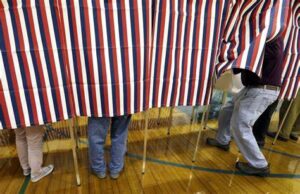I want to restate my desire for the Princeton City Council to conduct an open, transparent and accountable search for a new city manager.
Now I also intend to tell you why I think it is vital.
Mike Mashburn resigned as city manager after serving a little less than two years. He was out of his element running a city in the midst of a growth explosion such as Princeton. Now he’s gone and will pursue his future elsewhere. I wish him good luck.
Now the council is embarking on a search for a new chief administrator. Why is it vital for the council to do it the right way this time? It is because the city manager is going to make a healthy six-figure salary running a city on the move. As manager he or she will be answerable to more than 40,000 residents. They will call on him or her to ensure the city can solve all manner of issues.
Potholes in the street? Spotty lighting on some of the city’s darker streets? Ensuring the garbage gets picked up? Riding herd on the police department if a spike in crime occurs? Ensuring firefighters respond quickly to emergencies? Helping resolve violations of city ordinances?
The council makes precisely one hiring decision. It is the city manager. The manager then hires department heads who run the various publicly funded departments to take care of the issues I have just lined out … understanding that I have left other issues off my list.
Mashburn got the council’s nod on the very night council members met him for the first time. Brianna Chacon was mayor in January 2024. She interviewed Mashburn and decided all by herself that he was the one for the job. She introduced the designated manager to the council, which in my view then foolishly voted to hire him on the spot.
No one on the council seemingly thought that Mashburn was being foisted on the city. They could not possibly have asked any sort of difficult questions while meeting initially with him that night in executive session.
The next city manager must endure a thorough vetting by the council, by relevant department heads and most importantly by the public this individual will serve. We all need a voice in making this critical decision. The concept of good government requires it.
